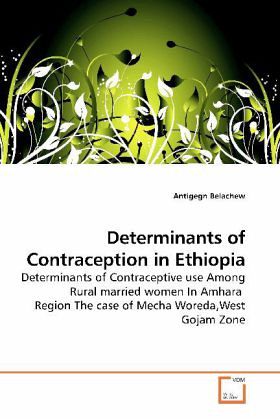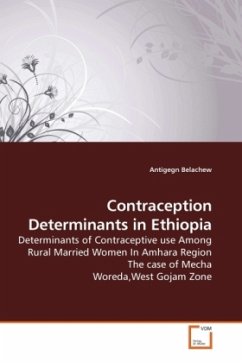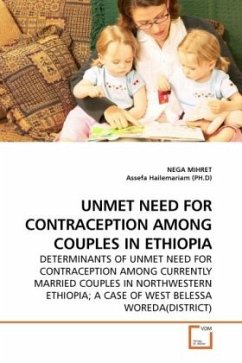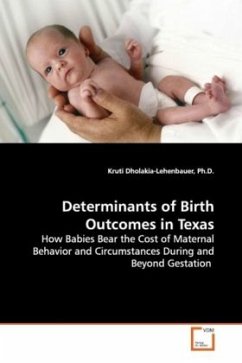
Determinants of Contraception in Ethiopia
Determinants of Contraceptive use Among Rural married women In Amhara Region The case of Mecha Woreda,West Gojam Zone
Versandkostenfrei!
Versandfertig in 6-10 Tagen
32,99 €
inkl. MwSt.

PAYBACK Punkte
16 °P sammeln!
In Ethiopia, population growth is the highest and contraceptive prevalence rate is the lowest. Factors of contraception have hardly been explored in rural Ethiopia. A cross-sectional study was conducted to explore factors of contraception among rural married women of reproductive age in Mecha of West Gojjam Zone using qualitative and quantitative data. A structured questionnaire interview among 517 women and an in-depth interview among service providers were done. 21.3% women were using modern contraception at the time of the survey. Using logistic regression Illiteracy, absence of inter-spous...
In Ethiopia, population growth is the highest and contraceptive prevalence rate is the lowest. Factors of contraception have hardly been explored in rural Ethiopia. A cross-sectional study was conducted to explore factors of contraception among rural married women of reproductive age in Mecha of West Gojjam Zone using qualitative and quantitative data. A structured questionnaire interview among 517 women and an in-depth interview among service providers were done. 21.3% women were using modern contraception at the time of the survey. Using logistic regression Illiteracy, absence of inter-spousal discussion, fear of side effects, death of children, and husband disapproval were found to be statistically significant in the use of contraception. Designing policies and strategies to encourage the adoption of family planning services through empowerment of women, encouraging husband-wife communication and providing women with counseling services to alleviate the long - standing ill health condition of the community in the area is recommended.












